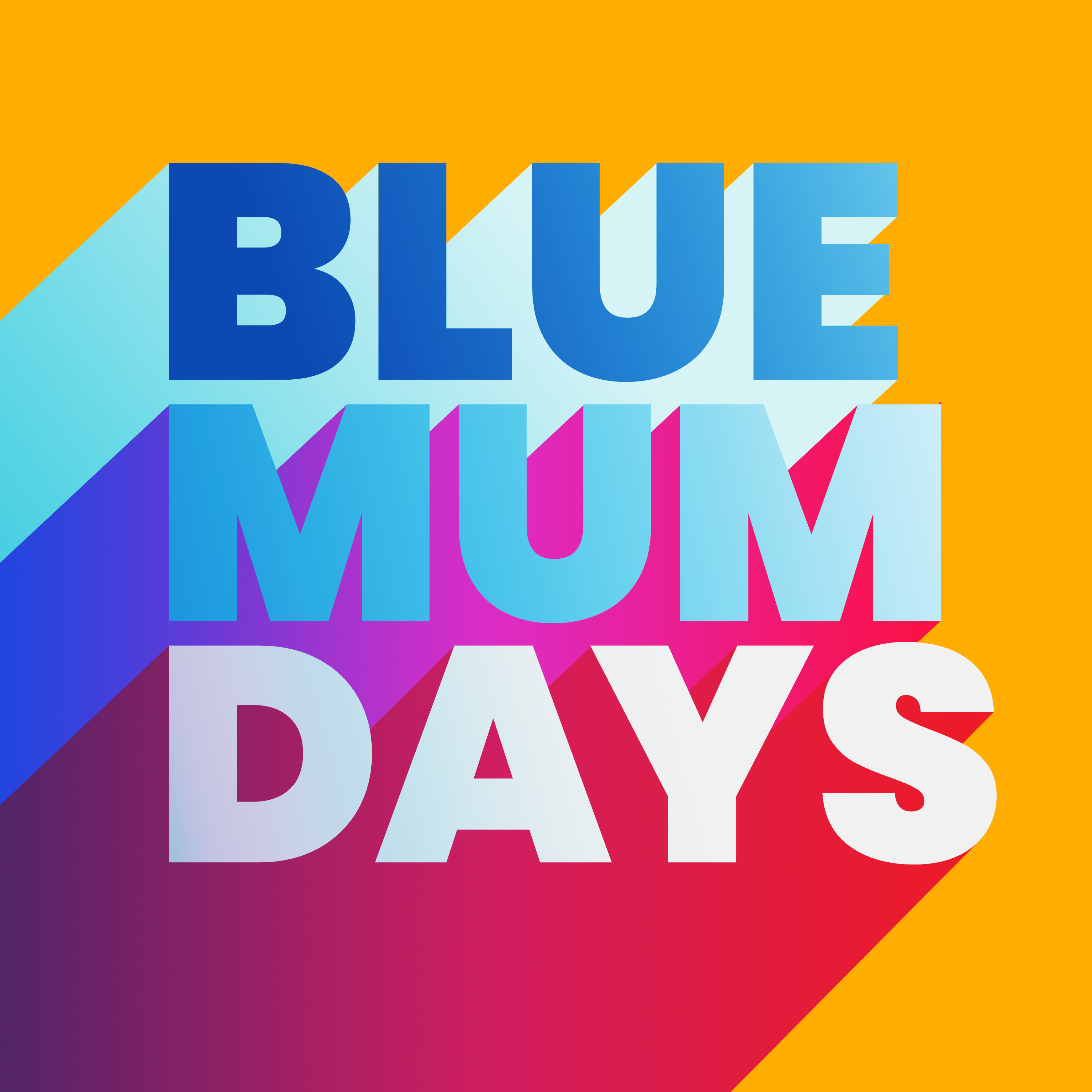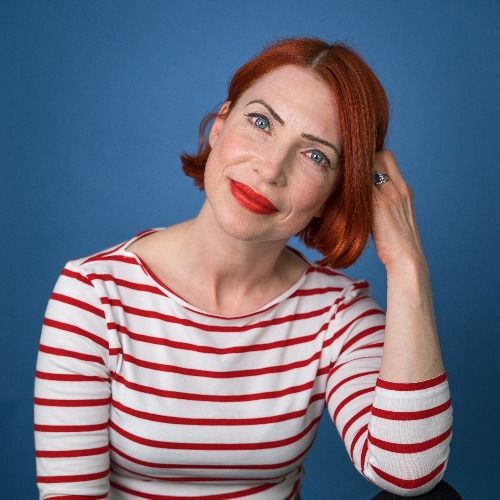Episode 27 - bonus
BLUE MONDAY BONUS: It's Good To Walk: JUSTIN EADE, WELLBEING SPECIALIST
As a special bonus for 'Blue Monday', wellbeing specialist Justin Eade of Glimpse ~ Moving Well shares 3 quick tips for making the most of a walk. He explains why time outside is so beneficial to us - no matter how short - and how a gym ball can help soothe a crying baby!
Bringing together more than 25 years of experience with mind-body practices and holistic health research, Justin is also a nebosh accredited occupational health and safety specialist.
He offers tailored and accessible workshops on topics like better sleep and rest, stress and anxiety, digestion, energy levels, joy and relaxation. These can be bespoke to your personal needs and interests and delivered on a 1-2-1 or group basis, either in person or online.
Simple embodied practice & ideas to help people achieve a good work (and family) life balance.
LEARN MORE:
- You can learn more about Justin and his work here: Glimpse Moving Well
- Twitter @glimpsei / Facebook / Pinterest.
- Get in touch: justin@glimpseinteractive.co.uk / +44(0)7946519835
If you enjoyed this episode, please share, rate and subscribe. It really does make the difference in helping others find it – which means helping more parents in need.
Follow us:
Join our Facebook Group
Email: bluemumdays@gmail.com
MUSIC by Joseph McDade
Transcript
Thanks Vix for inviting me to do this for Blue MumDays.
JUSTIN EADE:Really exciting opportunity.
JUSTIN EADE:Congratulations to everyone who's already a parent or recently become
JUSTIN EADE:one -amazing, deepest respect.
JUSTIN EADE:Many blessings on your futures.
JUSTIN EADE:I'm going to focus for a few minutes on something that most parents and
JUSTIN EADE:new parents do manage to do every day that supports their health and
JUSTIN EADE:wellbeing, 'cause that's an area that I've focused on for many years, and
JUSTIN EADE:that's to get outside for a walk.
JUSTIN EADE:So it doesn't just have to be when you're out walking the pram.
JUSTIN EADE:It can also be when you've got some time to yourself,
JUSTIN EADE:perhaps through some downtime.
JUSTIN EADE:Even if it's 20 minutes, you can just escape, get out the house
JUSTIN EADE:and do something for yourself.
JUSTIN EADE:The focus really on that is getting a little bit more from that opportunity.
JUSTIN EADE:Much of this people know already.
JUSTIN EADE:That's the way I look at it, is that we know this stuff instinctively.
JUSTIN EADE:If you've been alive, you've been doing all these things anyway.
JUSTIN EADE:It's just sometimes there's a little bit of extra science that helps to motivate,
JUSTIN EADE:and so I'm gonna share three focal points really, three kinds of techniques.
JUSTIN EADE:The first one being that as soon as you do step outside the air outside a building
JUSTIN EADE:generally is about five times better than the air on the inside of a building.
JUSTIN EADE:So really the quality of the air, the vitality as it were, of the
JUSTIN EADE:air for want of a a better phrase.
JUSTIN EADE:If you're in a very polluted area, obviously getting to the park or the green
JUSTIN EADE:space where the area is clean, it's quite important to really get that benefit.
JUSTIN EADE:When you're out, you can do a few things.
JUSTIN EADE:Like there's a technique in traditional Qi Gong and Tai Chi and so on.
JUSTIN EADE:I think it's called wu-wei, but it's basically in, in out.
JUSTIN EADE:So you're taking two in breaths and then an out breath.
JUSTIN EADE:So I'll just run through it now.
JUSTIN EADE:So you'll just be like,
JUSTIN EADE:so two through the nose and then one out through the mouth.
JUSTIN EADE:Or you can do all through nose.
JUSTIN EADE:What that does is it just basically as everybody who's ever done Wim Hof
JUSTIN EADE:knows, it starts to create that extra bit of oxygen intensity in the body,
JUSTIN EADE:and there's a lot going on with that.
JUSTIN EADE:One of the things that's happening when you're in a natural space, when you're
JUSTIN EADE:in a park or a space with trees is that those trees and plants, they give
JUSTIN EADE:off these things called phytoncides.
JUSTIN EADE:Phytoncides are the natural airborne chemicals that trees and plants give
JUSTIN EADE:off to protect themselves from insects and from disease, but they also have
JUSTIN EADE:many benefits to humans as well.
JUSTIN EADE:And it's really the foundation of forest bathing research in Japan.
JUSTIN EADE:I won't go into all the benefits, but there are multiple benefits.
JUSTIN EADE:One example would be its positive impacts on blood pressure.
JUSTIN EADE:So there are the phytoncides when you're near the trees.
JUSTIN EADE:If it's been raining or there's any running water or the air is nice and
JUSTIN EADE:damp, as it were, you are getting the benefits of the increased negative ions.
JUSTIN EADE:Again, outdoors, there are a lot more negative ions than
JUSTIN EADE:inside a house or a flat.
JUSTIN EADE:Negative ions, again, I won't go into deep science about it, but it's
JUSTIN EADE:really the sort of supercharged air.
JUSTIN EADE:So effectively we're looking at things like the air molecules and
JUSTIN EADE:the electrons and so on in the air.
JUSTIN EADE:If you were to go to a typical flat that's been with the windows closed,
JUSTIN EADE:you would measure, say a cubic area, cubic sort of meter, and you'd
JUSTIN EADE:find a few hundred negative ions, and these things are good for you.
JUSTIN EADE:They're really vital or vitalising.
JUSTIN EADE:If you were to go to a beach with crashing waves, you would find
JUSTIN EADE:thousands of negative ions per cubic.
JUSTIN EADE:So that's one of the reasons where you come back from a walk.
JUSTIN EADE:Crashing wavy beach and you just feel amazing, that palpable unmistakable
JUSTIN EADE:feeling of wellbeing and exhilaration that you feel that sort of vitality so
JUSTIN EADE:you can get quite a bit of that just from going on a walk after it's rained.
JUSTIN EADE:You could go during the rain, but anytime when you're getting like
JUSTIN EADE:water and the atmosphere together, that's where you're getting the
JUSTIN EADE:extra amounts of these negative ions.
JUSTIN EADE:Yeah, so that's one thing.
JUSTIN EADE:Just taking deeper breaths, maybe just really focusing on that you are
JUSTIN EADE:charging up when you're outdoors.
JUSTIN EADE:You're getting the kind of multiple benefits of really vital,
JUSTIN EADE:energised air, shall we say.
JUSTIN EADE:Number two would be to make that extra little point of focus on nature
JUSTIN EADE:connection, so that might be tuning into one or two or all of your senses
JUSTIN EADE:as you might be pushing a pram or out for a stroll and just noticing.
JUSTIN EADE:We do it all the time, but noticing branches and leaves and birds swooping.
JUSTIN EADE:It could be something simple like the clouds, just the movement of the
JUSTIN EADE:clouds on the shapes that you see, but just that extra connection to nature.
JUSTIN EADE:Creative connection, a sense of timeless connection.
JUSTIN EADE:One of the reasons that we connect so well with nature is that we've grown up with
JUSTIN EADE:it throughout our ancestry and our past.
JUSTIN EADE:So we trust nature, we depend on it, basically, but tuning into the sense.
JUSTIN EADE:It can be the smell, it can be the sound of the breeze and so forth,
JUSTIN EADE:running water, but just paying that extra little bit of attention.
JUSTIN EADE:And then a third tip, really, again, on getting the most out of a walk
JUSTIN EADE:would be just this idea or this reality actually that movement is medicine.
JUSTIN EADE:Movement is one of the most vital things that any human being does for
JUSTIN EADE:their health and wellbeing on a daily.
JUSTIN EADE:You could probably list in excess of a hundred benefits of a, of a walk.
JUSTIN EADE:I'll give you three examples.
JUSTIN EADE:So every cell in your body benefits from movement.
JUSTIN EADE:So the mitochondria in the cells benefits from movement, a little
JUSTIN EADE:bit like a sort of dynamo.
JUSTIN EADE:Every time you go walking, if you're using your feet, obviously on the ground,
JUSTIN EADE:if you are walking physically different, obviously if you are a wheelchair
JUSTIN EADE:user, but if you are walking on your.
JUSTIN EADE:You are stimulating those reflexology points and actually
JUSTIN EADE:points in the soles of the feet.
JUSTIN EADE:So quite a dynamic thing to be happening, but it's not something we
JUSTIN EADE:often focus on when we're on a walk.
JUSTIN EADE:We're just plodding along.
JUSTIN EADE:But actually all that stimulation and impact to the feet, to the soles
JUSTIN EADE:of the feet has multiple impacts and benefits that spread through the body.
JUSTIN EADE:And then the third one just to focus on for a minute, would be
JUSTIN EADE:the synovial fluid, which is the natural lubricant in the joints.
JUSTIN EADE:It's like a kind of egg yolk, and it's there throughout the body in all the
JUSTIN EADE:joints, but it's released and stimulated, and it increases when you move.
JUSTIN EADE:So when you go for a walk, your hips, your knees, your ankles, your arms
JUSTIN EADE:and so on, it's starting to increase that and that can help reduce pain.
JUSTIN EADE:And it's just really described as the body's natural lubricant,
JUSTIN EADE:which is probably an easy way to remember that you're getting a
JUSTIN EADE:benefit from moving rather than being stuck on the sofa, for instance.
JUSTIN EADE:So yeah, not missing that daily walk is probably the best bit of advice, you
JUSTIN EADE:know, just the light that you're getting, the natural light, the air, and so on.
JUSTIN EADE:It's really in.
JUSTIN EADE:I'd probably say it's one of the top things that I would recommend for
JUSTIN EADE:any anybody, particularly new parents who've got those extra channels.
JUSTIN EADE:My one more little bonus tip, this is the one I used to say to everybody years
JUSTIN EADE:ago, which is the gym ball is one of the best ways to help a crying baby.
JUSTIN EADE:You got your crying baby on your.
JUSTIN EADE:Perhaps with your papoose or just holding in your arms.
JUSTIN EADE:If you sit on that gym ball, you can basically create a nice bouncing action,
JUSTIN EADE:but you don't get knee pain and exhaustion that you would eventually after doing
JUSTIN EADE:this for half an hour with a crying baby.
JUSTIN EADE:So you can quite happily do this 10, 20, 30 minutes or even an hour
JUSTIN EADE:and you can kind of move and so on.
JUSTIN EADE:But you are supported, so it's good for you as well as the baby
JUSTIN EADE:will generally stop crying once you've started to bounce in rhythm.
JUSTIN EADE:So yeah, that's my sort of extra tip.
JUSTIN EADE:I think the NHS should give every new parent a gym ball.
JUSTIN EADE:Thank you so much for having me.
JUSTIN EADE:I hope some of this might be useful.

